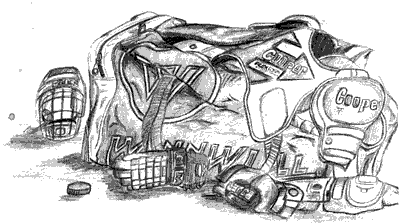All Nonfiction
- Bullying
- Books
- Academic
- Author Interviews
- Celebrity interviews
- College Articles
- College Essays
- Educator of the Year
- Heroes
- Interviews
- Memoir
- Personal Experience
- Sports
- Travel & Culture
All Opinions
- Bullying
- Current Events / Politics
- Discrimination
- Drugs / Alcohol / Smoking
- Entertainment / Celebrities
- Environment
- Love / Relationships
- Movies / Music / TV
- Pop Culture / Trends
- School / College
- Social Issues / Civics
- Spirituality / Religion
- Sports / Hobbies
All Hot Topics
- Bullying
- Community Service
- Environment
- Health
- Letters to the Editor
- Pride & Prejudice
- What Matters
- Back
Summer Guide
- Program Links
- Program Reviews
- Back
College Guide
- College Links
- College Reviews
- College Essays
- College Articles
- Back
Student Athletes at the Ivy Leagues
Some college students party their way through college, some breeze their way through, and some train their way through—that is, athletes train their way through. For the low percent of student athletes attending a top Ivy League division one college, their lives consist of training for their sport and studying for classes—no partying, no breaks, and no exceptions.
According to Admissionconsultants.com, the eight Ivy Leagues—Harvard, Yale, Princeton, Pennsylvania, Cornell, Dartmouth, Brown, and Columbia— are a small group of private colleges known for their rigorously demanding academics. Add on a full-time sport commitment and student-athletes are in for a stressful four years.
While some believe athletes are treated differently by their professors, this is not true. In fact, they do not have lowered academic obligations and are not given any extra benefits than any of the other students. Professors will not excuse poor academic marks on the account of someone being an athlete.
Kyle Wilcox, a sophomore running back on the football team at University of Pennsylvania, has first-hand experience in academic standard.
He says, “I guess you could say we might be able to connect with more alumni, but that’s about it. Really I think student athletes are at a disadvantage because professors will think you are just a dumb jock.”
The student-athletes at Ivy Leagues are expected to perform just as well as the non-athletes, while overcoming this stereotype. They do not receive extra privileges, nor an easier grading scale or extensions on due dates.
Non-student-athletes have five or more hours in a day to study, sleep, or just relax. This adds further pressure to find time to athletes to excel at the already cutthroat academics present.
Yet, through the lack of time and added obligations, it can be argued that the advantages these athletes have outnumber the disadvantages. Being a student athlete at one of the top schools in the country defines these students identity. It impacts who their friends are, when they schedule their classes, and how they spend their free time. Athletics advance their opportunities both on and off the field. A high level education paired with a high level accomplishment in athletics opens up not one door, but two: a future in athletics and in the normal work force.
Wilcox confirms if he could, he wouldn’t change a thing.
He says, “While there are negatives such as grades not being as high or not having as much free time, the benefits outweigh the negatives by a landslide.”

Similar Articles
JOIN THE DISCUSSION
This article has 0 comments.
